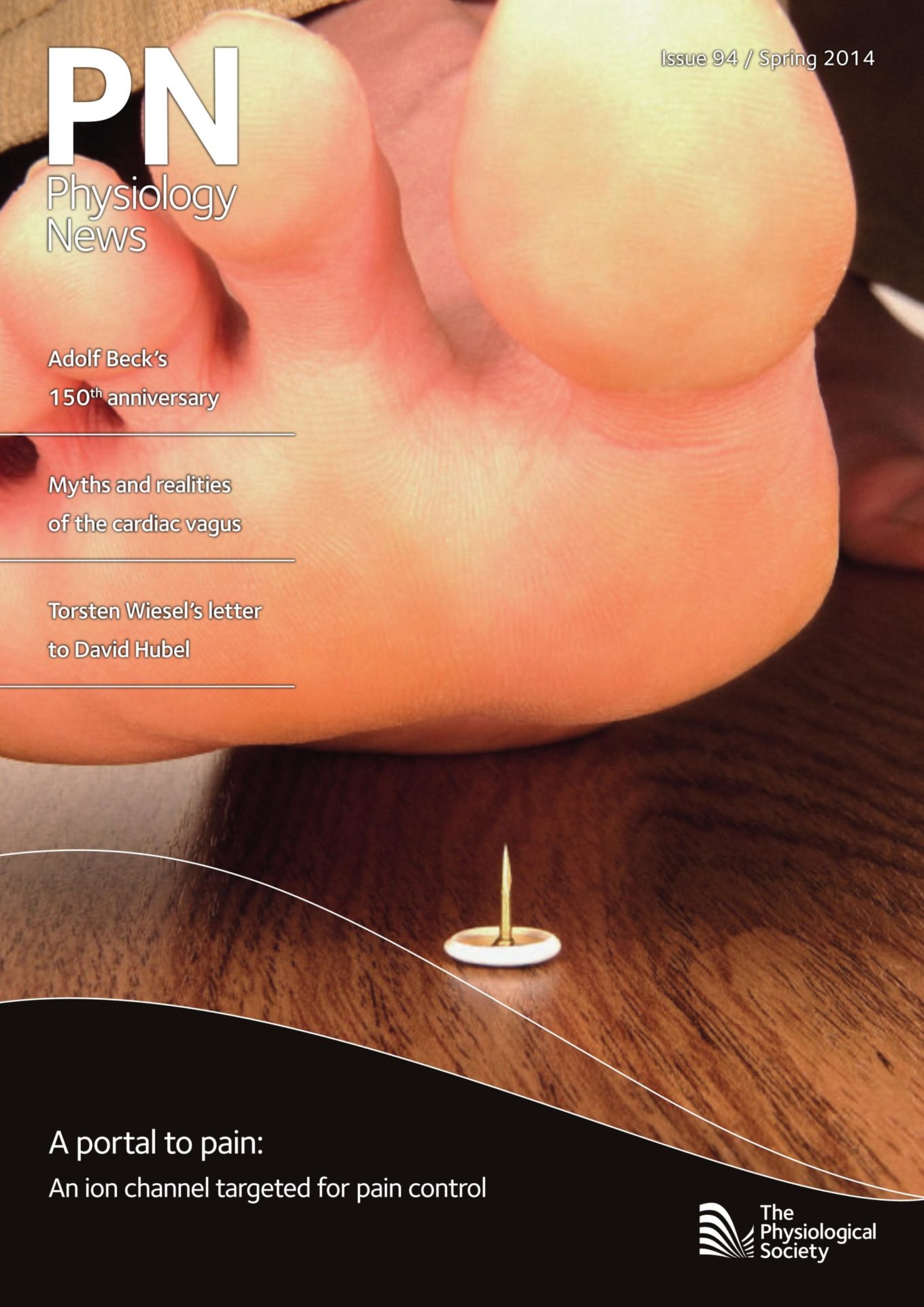
Physiology News Magazine
Outreach report: Promoting physiology and related careers in schools
In 2012, The Physiological Society piloted its Public Engagement Grant Scheme, offering up to £5000 to run a public engagement activity discussing physiology. Shelia Amici-Dargan, the first recipient of a grant, reports on how the money has been used.
Membership
Outreach report: Promoting physiology and related careers in schools
In 2012, The Physiological Society piloted its Public Engagement Grant Scheme, offering up to £5000 to run a public engagement activity discussing physiology. Shelia Amici-Dargan, the first recipient of a grant, reports on how the money has been used.
Membership
Sheila Amici-Dargan
School of Biosciences, Cardiff University
https://doi.org/10.36866/pn.94.48

The Physiological Society Public Engagement Grant enabled us to develop and deliver a programme of interactive physiology workshops for secondary schools and create online copyright-free resources that can be shared freely amongst Members of The Physiological Society and educators to promote physiology.
In the summer of 2012, two high-achieving undergraduate physiology students, Lucy Olukogbon (funded by The Society) and Lydia Parsons (funded by the Cardiff Undergraduate Research Opportunities Programme, CUROP) worked to design resource packs for secondary school teachers on the following topics: ‘breathing and asthma’, ‘healthy hearts and exercise’ and ‘muscles and movement’. A variety of interactive resources were developed and piloted in local schools and colleges to make sure the activities were pitched appropriately and could be easily adapted for different age groups. After running these pilot tests, two biology pupils (AS and A2 level) were recruited for three weeks to test our resources, give feedback on their suitability and help make them more engaging to pupils. This opportunity helped the students work towards and achieve their Gold CREST award, a nationally recognised award recognising personal achievements in STEM (science technology, engineering and maths) subjects.
The resource packs contain session plans, a short PowerPoint presentation on the physiology topic and links to useful career resources. The packs also contain simple hands-on activities, quizzes and promotional bookmarks with QR codes and weblinks to The Physiological Society’s ‘Understanding Life’ website and ‘CUBE’ (see box). Workshop objectives are concisely mapped onto current school curricula (WJEC, AQA, QCR and Edexcel) to help teachers integrate them into their teaching and to give researchers and students a guide to pupils’ understanding.
Alongside these resources, we used the funding to run some advanced physiological experiments (ECG, EEG and EMG) using ADI kits in Cardiff, Merthyr Tidfil and Abergavenny. We had some excellent feedback, with one teacher from St David’s College commenting, “The students thought it was applicable to the syllabus and enjoyed the style in which it was taught – fun and interactive – but most importantly educational.”
To increase the impact of our project and reach wider audiences, we ran sessions at other venues (e.g. Techni-quest ‘adult night’, teachers’ panel day, Foster Carers’ event, Cardiff Science Festival, Penylan library and Green Man Festival). We have also just initiated a public engagement training programme for undergraduate bioscience students and researchers to equip them to run workshops with schools and community groups. This will enable us to get out to more schools to promote physiology and related bioscience disciplines, whilst also increasing awareness of the need for current physio-logical research amongst the general public.
Acknowledgements: Academic staff and students in Cardiff Schools of Biosciences and Psychology (especially Sarah Hall and Fiona Willey, and those who contributed videos/profiles); secondary school pupils and teachers; IT team at Cardiff University; CUROP and Physiological Society funding.
C.U.B.E: Free online resources for physiologists,biomedical scientists and teachers
Ruth Jones, an undergraduate summer student (funded by CUROP) designed a website which we have recently launched called C.U.B.E: Collaborative University Bioscience Engagement. We have started to populate this with resources and will continue to do so. We are building up a collection of short videos of students and researchers to expose pupils to degree schemes, to opportunities at university and to scientific careers. The “CUPID” (Collaborative University Physiology Interactive Demonstrations) section contains examples of simple hands-on activities that are cheap to run and have proved popular with schools and local community groups. We are also creating ‘Loan Boxes’ which can be borrowed by teachers or researchers to run practical activities.
More recently, we have started creating biomedical research-based activities to expose ‘more able and talented’ (MAT) pupils to laboratory techniques and to help develop literacy and numeracy skills. Sumit Mistry, an undergraduate summer student (funded by The Physiological Society and CUROP) has been instrumental in developing MAT activities and piloting them in schools across Wales, including Whitchurch High School in Cardiff and Afon Taf High School in Merthyr Tydfil. To date these activities have been well received by pupils (average enjoyment score 4/5 on Likert Scale, n = 70) and teachers are keen for us to develop more activities on different research topics. The resources on this website are currently Cardiff-focused, but we are keen to collaborate with other institutions to expand this resource, so please get in touch if you are interested in getting involved: DarganSL@cf.ac.uk
